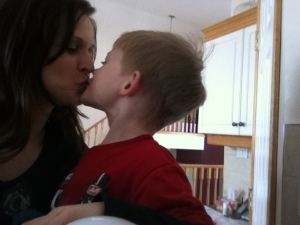
Over the past year I have asked my staff to pay particular attention to the reasons patients give for wanting to transfer their prescriptions over to our pharmacy. Despite being a small, independent pharmacy and being surrounded by competitors offering incentives and points programs, patients regularly transfer their prescription files over to us from neighbouring pharmacies. I consider these patient comments to be priceless information to guide the direction of our practice.
Here is what we hear most often about the pharmacies patients are leaving:
“When I go in there, I feel like I’m bothering them.”
“They said they couldn’t help me.”
“They don’t explain things to me.”
“They don’t seem to have time for me.”
“They didn’t seem to be listening when I was talking to them.”
There are many variations of the above sentiments, but what it points to is patients who feel a lack of care or empathy from the pharmacy staff. While there can be many contributors to a patient’s poor experience in their previous pharmacy, I have looked as well to the reasons patient’s give for choosing our pharmacy. Most often I hear from patients that my staff seem to really care about them, they go above and beyond to help them, they take time to really hear what is important to them.
Now, I’m no hiring wizard, and by no means am I able to always hire people who simply excel naturally at great customer service. However, what I do think has been a key to our success is that, for the most part, my employees are happy. They take pride in their work and genuinely care about the people we serve.
Let’s face it, your staff are the face of your business. If your employees are not happy, your patients will know it! Why are patients often treated poorly or made to feel like they are a bother? Most often it is from interacting with employees who are unhappy in their jobs and would rather be elsewhere.
Your employees really are your best advertisers. No matter what the message is on your website or your bag stuffers, your logos or slogans, a patient’s experience of your business all comes down to the staff they interact with.
Here are three key areas to increase staff positivity and retention:
- Allow staff to work to their full potential. Working to their fullest potential is empowering for pharmacists as well as technicians. Move your professionals away from tasks best suited to support staff and provide the structure required for them to work at the top of their license.
- Provide vision and leadership. Team members are happier if they have purpose and meaning in their work. Be sure to voice your vision and encourage your team to see the bigger picture in their daily tasks.
- Involve your staff in decision making. Having a say in some operational decisions creates a sense of ownership for team members. Ultimately, they will be more satisfied with their position and more likely to stay with your business.






